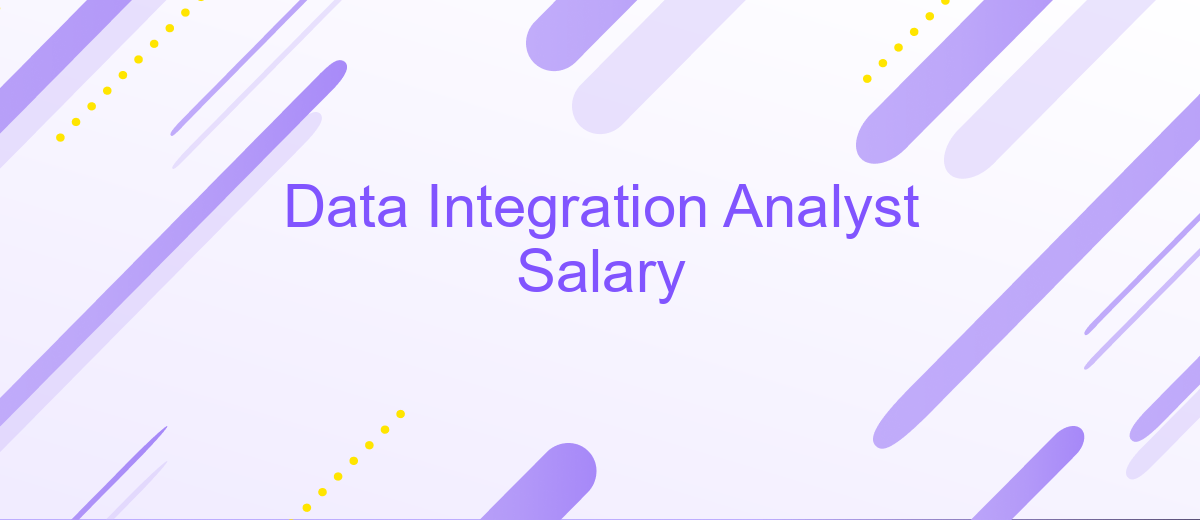Data Integration Analyst Salary
In today's data-driven world, the role of a Data Integration Analyst has become increasingly crucial. These professionals are responsible for consolidating data from various sources to provide actionable insights. As the demand for skilled analysts grows, understanding the salary trends and factors influencing compensation in this field is essential for both job seekers and employers.
Data Integration Analyst Salary Overview
The salary of a Data Integration Analyst can vary based on multiple factors such as experience, location, and the complexity of the projects they handle. These professionals play a crucial role in ensuring seamless data integration across various platforms, which is essential for informed decision-making in businesses.
- Entry-level: ,000 - ,000 per year
- Mid-level: ,000 - ,000 per year
- Senior-level: ,000 - 0,000+ per year
In addition to salary, Data Integration Analysts often benefit from bonuses, health insurance, and other perks. Tools like ApiX-Drive can significantly enhance their efficiency by automating data integration processes, allowing them to focus on more strategic tasks. This, in turn, can lead to higher compensation as their value to the organization increases.
Factors Affecting Salary

Several factors significantly affect the salary of a Data Integration Analyst. Geographic location plays a crucial role, as analysts in metropolitan areas tend to earn higher salaries due to the increased cost of living and demand for specialized skills. Additionally, the level of education and certifications, such as a degree in computer science or specialized courses in data integration tools, can greatly influence earning potential. Experience in the industry is another key determinant; those with extensive hands-on experience and a proven track record of successful projects typically command higher salaries.
The complexity and scale of the integration projects also impact salary levels. Analysts who work with advanced integration platforms like ApiX-Drive, which streamline the integration of various applications and automate workflows, are often more valued. Proficiency in using such tools can lead to better job opportunities and higher compensation. Furthermore, the size and type of the employing organization matter; larger companies or those heavily reliant on data-driven decision-making are likely to offer more competitive salaries to attract top talent.
Salary Ranges by Experience and Location

When considering a career as a Data Integration Analyst, it's important to understand how salary ranges can vary based on experience and location. Entry-level analysts can expect to earn a lower range, while those with more experience and specialized skills can command higher salaries.
- Entry-Level (0-2 years): ,000 - ,000 annually
- Mid-Level (3-5 years): ,000 - ,000 annually
- Senior-Level (5+ years): ,000 - 0,000+ annually
Location also plays a significant role in determining salary. For instance, Data Integration Analysts in tech hubs like San Francisco or New York typically earn more than those in smaller cities. Additionally, leveraging tools like ApiX-Drive for streamlining integration processes can enhance an analyst's efficiency and potentially lead to higher compensation. Understanding these factors can help you navigate your career path more effectively.
Benefits and Perks

Working as a Data Integration Analyst offers numerous benefits and perks that make this role highly rewarding. One of the primary advantages is the opportunity to work with cutting-edge technologies and innovative tools, such as ApiX-Drive, which simplifies the process of integrating various data sources.
In addition to the technical benefits, Data Integration Analysts often enjoy a competitive salary and a comprehensive benefits package. This typically includes health insurance, retirement plans, and opportunities for professional development.
- Flexible working hours
- Remote work options
- Access to the latest software and tools
- Generous paid time off
- Continuous learning and development opportunities
Furthermore, the role provides a sense of accomplishment as you help organizations streamline their data processes and make informed decisions. By leveraging services like ApiX-Drive, Data Integration Analysts can enhance their efficiency and contribute significantly to their team's success.


Career Growth and Outlook
The career growth for Data Integration Analysts is promising, driven by the increasing need for businesses to streamline their data processes and integrate various data sources. As organizations continue to adopt more complex data ecosystems, the demand for skilled professionals who can manage and optimize these integrations is on the rise. Entry-level positions often involve working with established data integration tools and platforms, but with experience, analysts can move into more strategic roles, such as data architects or integration managers. Continuous learning and staying updated with the latest technologies and methodologies are key to advancing in this field.
In terms of career outlook, the future looks bright for Data Integration Analysts. The rise of cloud services and the growing importance of data-driven decision-making are fueling the need for effective data integration solutions. Tools like ApiX-Drive are becoming essential, as they simplify the process of connecting different applications and automating data workflows. Mastery of such tools can significantly enhance an analyst’s skill set, making them more valuable to employers. Furthermore, the ability to leverage these technologies to drive business efficiencies ensures that Data Integration Analysts will remain in high demand across various industries.
FAQ
What is the average salary for a Data Integration Analyst?
What factors influence the salary of a Data Integration Analyst?
Are there opportunities for salary growth in the Data Integration Analyst role?
What skills are essential for a Data Integration Analyst to maximize their salary potential?
Can automation tools impact the salary of a Data Integration Analyst?
Apix-Drive is a universal tool that will quickly streamline any workflow, freeing you from routine and possible financial losses. Try ApiX-Drive in action and see how useful it is for you personally. In the meantime, when you are setting up connections between systems, think about where you are investing your free time, because now you will have much more of it.

